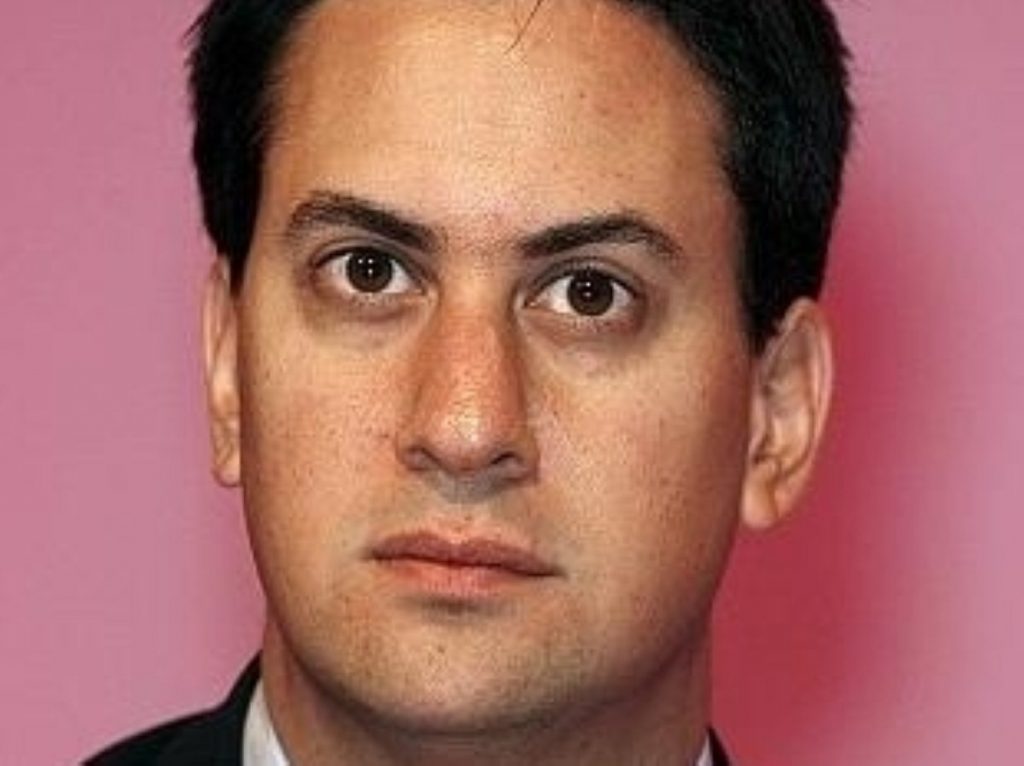Labour leadership: Ed Miliband gets personal
By Ian Dunt
Ed Miliband has delivered the most personal speech of the Labour leadership election, coming clean about his early life and political inspirations.
The speech also marks out clear territory on the left of the party where he will base his campaign, with demands for a limit on the gap between rich and poor and rules on pay differentials in the private sector.
The early part of the speech dealt with his upbringing at the hands of prominent Marxist intellectuals who were deeply engaged in the international struggle for socialism.


Ralph Miliband, a celebrated Communist academic, was a refugee from the Nazis who caught one of the last boats from Belgium to Britain in 1940. His mother had survived in Poland on false papers as a Catholic.
“For me and David [Miliband], my parents created stability out of the darkness of their early lives and the welcome that Britain gave them has given me a security that they just never had,” Ed Miliband said.
“That is why I love this country.”
The shadow energy and climate change secretary used the speech to disassociate himself from the New Labour years, despite his success as a Cabinet secretary during the period.
“It’s time to turn the page from Blair and Brown – all the candidates believe that,” he said.
“But the question is who can really move us on from a politics that was too technocratic and managerial and stopped inspiring, to one rooted in our values, more optimistic about the change we can make happen.”
He also criticised the authoritarian culture that took over the party during its stint in power, branding it an organisation that “stifled dissent and debate”.
But the most notable sections of the speech related to his direct pitch to the left of the party.
At one point he specifically rejects the oft-repeated Peter Mandelson quote about being relaxed with people becoming “filthy rich”.
“The gap between rich and poor matters,” Ed Miliband said.
“When a nurse earns less in a year than a banker earns in a week and it’s the banker that caused the credit crunch, and the gap grows wider every year, it is unjust, it is bad for society, it is bad for our economy and we should say so.”
Ed Miliband argued that the pay commission looking into public sector salaries should have its remit expanded to incorporate the private sector as well, turning it into a ‘high pay commission’.
The proposal is radical. With the public sector commission aiming at limiting senior salaries to no more than 20 times the lowest in the organisation, Ed Miliband’s proposals would entail a nationwide upper salary limit.
“If they [the government] don’t ask Will Hutton, who is the chair of that commission, to do it for them in government, I’ll do it in opposition,” he said.
“And people at the top should, of course, pay their fair share of tax.
“Let me say plainly: I would keep the top rate of income tax at 50p permanently.”
With Andy Burnham and his brother David Miliband occupying the central and right wing of the party, Ed Miliband is left to fight Diane Abbott and Ed Balls on the left.
Mr Balls, a long-time Brown confidant and currently shadow education secretary, is considered by many analysts to be too tainted by the Brown years to emerge victorious.
Ms Abbott is the wildcard. Although some commentators have written her off as too unpredictable and socially awkward for the leadership, others are wary of jumping to assumptions about the first black woman to enter parliament.
With unions and party members – both traditionally to the left of the parliamentary party – making up most of the votes, Ms Abbott could easily enjoy a far more successful run than most analysts give her credit for.
The more successful she is, the tougher life becomes for Ed Miliband.

